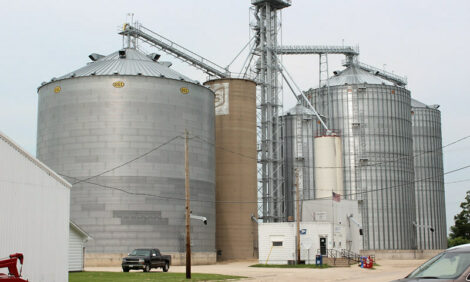



Pew Applauds Introduction of Antibiotic Act
US - Pew Commission on Industrial Farm Animal Production welcomes the introduction of the Preservation of Antibiotics for Medical Treatment Act (PAMTA).Nearly one year after the Pew Commission on Industrial Farm Animal Production released its landmark recommendations on how America should reform the way food animals are raised, US Representative Louise Slaughter introduced the Preservation of Antibiotics for Medical Treatment Act of 2009 (PAMTA) yesterday, 17 March. The bill amends the Federal Food, Drug, and Cosmetic Act to withdraw the use of seven classes of antibiotics vitally important to human health from use on factory farms unless animals or herds are sick with disease.
"Human antibiotics are routinely misused on factory farms to promote faster animal growth and compensate for crowded, stressful and unsanitary conditions," said Robert Martin, a senior officer with the Pew Environment Group. "Medical experts agree that this practice directly contributes to a dramatic rise in antibiotic-resistant infections in people. We must reduce the use of antibiotics today to help preserve their effectiveness tomorrow."
According to estimates by the Union of Concerned Scientists, 50 million pounds of antibiotics have been used in industrial farm animal production since PAMTA was last introduced two years ago. Also during those two years, nearly one billion pounds of untreated livestock manure has been introduced into the environment. According to the United States Department of Agriculture, pathogens and pharmaceutically active compounds in manure can be transmitted to other animals and humans through the foods we eat and water we drink. In addition, production of fresh fruit and vegetables using manure or irrigating with wastewater could be mechanisms of pathogen transfer. While human antibiotics are being used in enormous quantities on the farm, they are becoming less effective in people. At the same time, few new antibiotics are entering the market to take the place of ineffective ones. The Food and Drug Administration last approved a new antibiotic for humans in 2003.
The seven classes of drugs that would be revoked from routine use include penicillins, tetracyclines, macrolides, lincosamides, streptogramins, aminoglycosides, sulfonamides and any other drug used to treat bacterial illness in people.
"Doctors almost always warn their patients never to take antibiotics if they are not actually sick," said Laura Rogers, Project Director of the Pew Campaign on Human Health and Industrial Farming. "Yet this is what is happening on industrial farms today – healthy animals are fed low doses of antibiotics over long periods of time, creating the ideal breeding ground for bacteria to become resistant. Our food production practices need to change in order to keep us all safe."
Background
According to the Infectious Diseases Society of America, 90,000 people die each year of a hospital-acquired infectious disease. Of these individuals, an estimated 70 per cent have infections that are resistant to at least one antibiotic drug. One study estimates that in 2005 MRSA (methicillin-resistant Staphylococcus aureus), a particularly severe bacterial infection that is resistant to antibiotics, caused over 18,000 deaths in the United States—a mortality level greater than that of HIV/AIDS. Such severe illnesses result in both higher frequency and longer duration of hospitalizations, raising the cost of health care. In 1998, the Institute of Medicine estimated that antibiotic-resistant bacteria generated an estimated $4 to 5 billion dollars per year in extra costs to the US healthcare system, and it is likely these costs have increased over time.
Medical experts across the globe agree that the growth of bacterial infections resistant to antibiotic treatment is a looming public health crisis, and the misuse of antibiotics on industrial animal farms plays a significant role in that crisis. The Union of Concerned Scientists estimates that as much as 70 percent of all antibiotics sold in the US are destined for food animal production, not to treat diagnosed diseases, but for weight gain and disease prevention in the crowded, unsanitary conditions of many factory farms. While antibiotics are prescribed in people for short-term disease treatment, these same critically important drugs – drugs like tetracycline, erythromycin and ciproflaxin – are fed to herds or flocks at low doses often over their entire lives, creating ideal conditions for the breeding of new and dangerous antibiotic-resistant bacteria.
Resistant bacteria can transfer drug resistance to other bacteria and enter the human population through not just eating but handling contaminated meat, through contact with farm workers, or through pollution of the local environment, air, or water supply. As a result, many serious infections – ranging from E. coli to pneumonia to malaria and anthrax – are increasingly difficult to treat with even the most potent antibiotics.
About the campaign
Three years ago, The Pew Charitable Trusts launched an independent national commission to assess the farm animal industry's impact on public health, the environment, farm communities and animal health. In April 2008, the Pew Commission on Industrial Farm Animal Production called for stricter regulation of antibiotic use in large-scale animal operations to preserve pharmaceutical efficacy for humans and to encourage more sanitary husbandry conditions. The Pew Health and Human Services Policy program and the Pew Environment Group have taken up that call, launching an effort to eliminate the routine use of life-saving antibiotics in healthy animals raised on factory farms.
For more information, click here.








